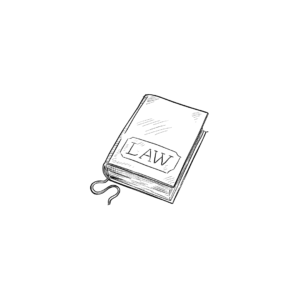Description
Overview of Post Graduate Diploma in Criminal Law
A Post Graduate Diploma in Criminal Law is a specialized program designed to provide students with an in-depth understanding of criminal law, its principles, procedures, and the overarching justice system. This program focuses on the legal aspects of criminal behavior, the rights of the accused, the prosecution process, and the impact of crimes on society. It prepares graduates for various roles within the criminal justice system, including roles in law enforcement, legal practice, and policy analysis.
Curriculum of Post Graduate Diploma in Criminal Law
While the specific curriculum may vary by institution, a typical Post Graduate Diploma in Criminal Law often includes the following core subjects:
Introduction to Criminal Law
Overview of the fundamental principles of criminal law, including the definition and classification of crimes.
Examination of key concepts such as intent, negligence, and criminal liability.
Criminal Procedure and Evidence
Study of the procedural aspects of criminal law, including investigation, arrest, trials, and appeals.
Understanding the rules of evidence and their application in criminal proceedings.
Substantive Criminal Law
Detailed analysis of various offenses, including homicide, theft, assault, and white-collar crimes.
Discussion of defenses in criminal law, including self-defense, insanity, and duress.
Theories of Punishment
Exploration of different theories of punishment (retributive, utilitarian, rehabilitative), and their implications for sentencing and corrections.
Criminal Justice System
Understanding the components of the criminal justice system, including law enforcement, the courts, and correctional institutions.
Examination of the roles and responsibilities of key players, such as police, prosecutors, and defense attorneys.
Human Rights and Criminal Law
Discussion of the intersection of human rights and criminal law, including the rights of the accused, victims? rights, and issues of wrongful conviction.
International Criminal Law
Overview of international crimes (e.g., genocide, war crimes, crimes against humanity) and the role of international tribunals and courts.
Examination of treaties and conventions governing international criminal law.
Cybercrime and Emerging Issues
Exploration of contemporary issues in criminal law, including cybercrime, terrorism, and the impact of technology on crime and law enforcement.
Juvenile Justice
Examination of the legal framework governing juvenile offenders, including rehabilitation and diversion strategies, and the differing treatment of juveniles in the criminal justice system.
Criminal Law Reform
Discussion on the need for reform in criminal laws and policies, including debates surrounding mandatory sentencing, death penalty abolition, and drug decriminalization.
Legal Research and Writing
Development of research and legal writing skills specific to criminal law, including drafting legal documents and preparing case analyses.
Practical Skills and Case Studies
Hands-on workshops or simulations focusing on trial advocacy, negotiation skills, and the roles of various participants in the criminal justice process.
Career Opportunities After Completing PG Diploma in Criminal Law
Graduates of a Post Graduate Diploma in Criminal Law can pursue various career paths, including:
Criminal Defense Attorney
Representing individuals accused of crimes, providing legal advice, and defending clients in court.
Prosecutor
Working for the state or federal government to prosecute criminal cases, representing the interests of the public in criminal proceedings.
Law Enforcement Officer
Serving in various capacities within police departments or federal agencies, focusing on crime prevention and investigation.
Legal Advisor for NGOs
Working with non-profit organizations focused on criminal justice reform, victims? rights, or legal aid.
Judicial Clerk
Assisting judges in research, drafting opinions, and managing court cases, providing insights into the judicial process.
Forensic Analyst
Working within crime labs or as part of law enforcement, analyzing physical evidence to support criminal investigations.
Policy Analyst or Researcher
Analyzing and proposing reforms in criminal law and justice policies for government agencies, think tanks, or academic institutions.
Victim Advocate
Supporting crime victims by providing information about their rights, helping them navigate the criminal justice system, and advocating for their needs.
Coroner or Medical Examiner
Investigating deaths, especially those that are sudden or unexplained, and providing expert testimony in court.
Academic or Educator
Teaching criminal law at universities or colleges, engaging in research related to criminal justice issues.
Conclusion
A Post Graduate Diploma in Criminal Law equips students with the knowledge and skills necessary to understand and navigate the complexities of criminal law and the criminal justice system. This program is ideal for legal professionals, law enforcement officials, and anyone interested in contributing to the field of criminal justice. If you have specific questions about institutions that offer this diploma, the application process, or further career guidance, feel free to ask!









